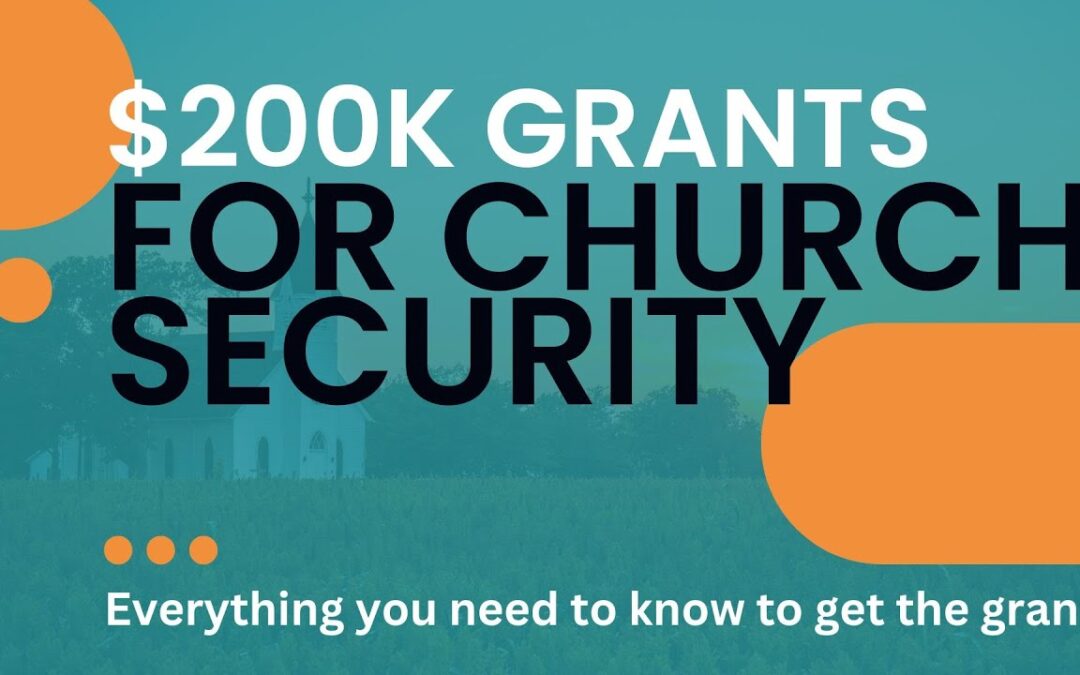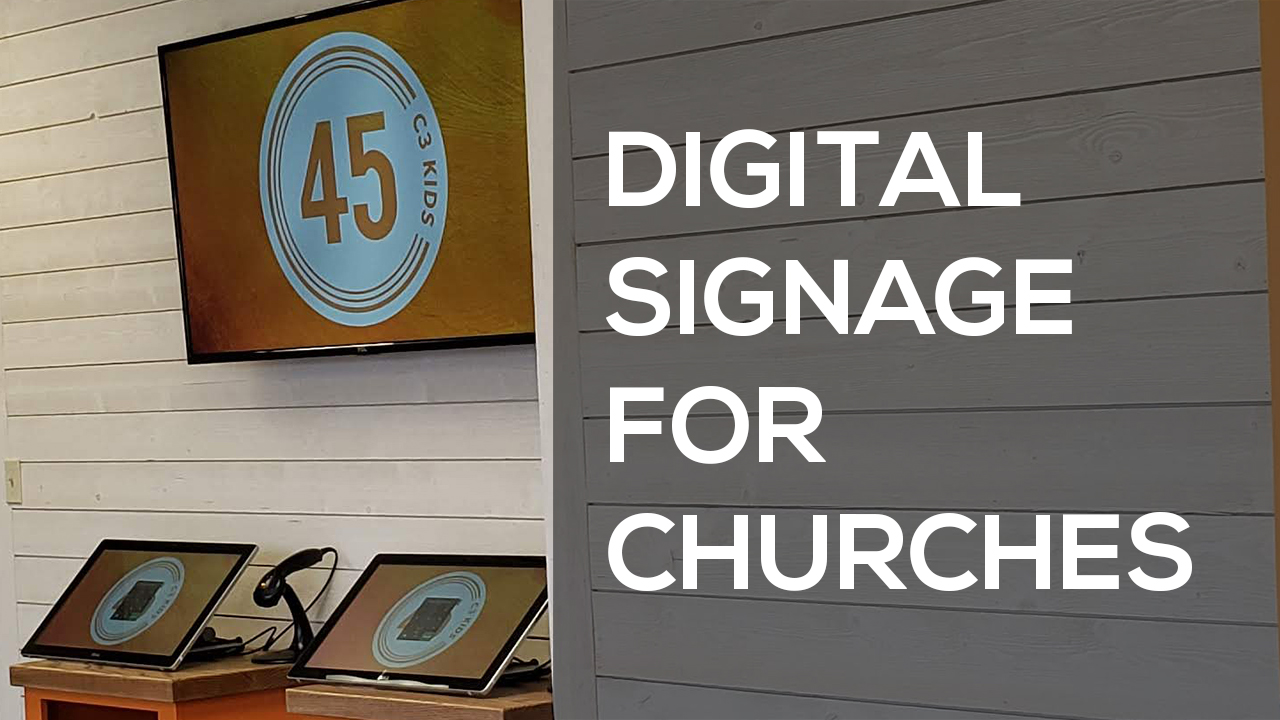In today’s security landscape, churches and other places of worship face unique risks. The Nonprofit Security Grant Program (NSGP), administered by FEMA under the Department of Homeland Security (DHS), is designed to help at-risk nonprofits, including churches, enhance their security posture. Through NSGP funding, churches can make significant security improvements, from physical infrastructure upgrades to staff training for emergency situations. Understanding the allowable costs under the NSGP is crucial for churches seeking to maximize these funds to create safer worship environments. Here’s an in-depth look at what churches can get through NSGP funding and how it can be applied to their specific needs.
Overview of Allowable Costs for Churches under NSGP
The NSGP provides comprehensive support for security projects that focus on protecting nonprofit facilities against terrorist and extremist threats. For churches, the NSGP funding covers several cost categories:
- Physical Security Enhancements
- Cybersecurity Improvements
- Emergency Preparedness and Training
- Management and Administrative (M&A) Costs
These categories enable churches to secure not only their physical spaces but also the digital environments that hold sensitive information on congregants and church finances. With a careful planning approach, churches can make significant strides in addressing security vulnerabilities through the allowable costs covered by the NSGP.
1. Physical Security Enhancements
For churches, physical security enhancements are often the highest priority, particularly as these facilities are highly visible and easily accessible. The NSGP covers a range of physical security measures to help churches protect their buildings and grounds.
Examples of Allowable Physical Security Costs:
- Surveillance Cameras and CCTV Systems: Installing closed-circuit television (CCTV) systems allows churches to monitor high-traffic areas like entrances, parking lots, and gathering spaces, providing both real-time visibility and recorded footage that can be valuable in case of an incident.
- Access Control Systems: These systems limit who can enter certain areas of the church. Common options include keypad or card-based entry systems, which restrict access to authorized individuals. For example, churches can install these systems to protect sensitive areas such as offices or financial records rooms.
- Barriers and Fencing: Adding perimeter fencing, bollards, or other barriers can prevent unauthorized vehicle or pedestrian access to certain areas. This is especially useful for churches located in high-traffic zones where controlling access is essential for safety.
- Alarm and Intrusion Detection Systems: These systems provide an immediate alert in the event of a break-in or other unauthorized access. Alarm systems can be integrated with monitoring services to notify law enforcement in emergencies.
- Window and Door Reinforcements: Windows and doors are typically vulnerable points in any building. Reinforcing them with shatter-resistant glass or installing secondary barriers enhances protection against break-ins or violent attacks.
Why Physical Security Matters for Churches
Churches, as community gathering spots, are particularly vulnerable to physical threats due to their open access during services and events. Implementing robust physical security measures can make these spaces safer and more secure, providing peace of mind to congregants and staff alike. By using NSGP funding to implement these enhancements, churches create visible deterrents that can discourage potential threats.
2. Cybersecurity Improvements
In addition to physical security, NSGP funds can be used to enhance a church’s cybersecurity infrastructure. Cyber threats are an evolving risk for churches that handle sensitive congregant information, donation processing, and online engagement.
Examples of Allowable Cybersecurity Costs:
- Firewalls and Antivirus Software: Installing or upgrading firewall systems and antivirus software helps to protect church networks from unauthorized access, malware, and other cyber threats. These systems create a first line of defense against attacks that could compromise sensitive data.
- Data Encryption and Backup Solutions: Encrypting sensitive information, such as donor records and congregant details, adds a layer of security that prevents unauthorized users from accessing data. Backup solutions ensure that information can be recovered quickly in the event of a ransomware attack or data breach.
- Cybersecurity Training for Staff: Educating church staff on best practices for data protection, recognizing phishing emails, and securing personal devices helps prevent accidental breaches. Training can be one of the most cost-effective ways to improve overall cybersecurity by addressing human factors that often lead to cyber incidents.
- Cybersecurity Assessments: Conducting regular assessments can help churches identify potential weaknesses in their systems and understand what security upgrades are needed. These assessments form a key part of cybersecurity planning and ensure that investments are targeted effectively.
The Importance of Cybersecurity for Churches
Cybersecurity is vital for churches that handle sensitive data, including congregant information, financial records, and event details. A data breach could compromise the trust that congregants place in the church, so investing in cybersecurity measures helps to protect both the church’s reputation and its members’ privacy. NSGP funding for cybersecurity improvements ensures churches can safeguard their data, enabling them to focus on their mission with confidence.
3. Emergency Preparedness and Training
NSGP funding also supports emergency preparedness initiatives and security-related training programs. Training equips staff and volunteers with the skills they need to respond effectively during a crisis, while preparedness plans ensure that procedures are in place for different scenarios.
Examples of Allowable Training and Preparedness Costs:
- Active Shooter and Emergency Response Training: These trainings prepare church staff and security personnel to respond effectively in the event of an active shooter or other immediate threat. Churches can contract with security experts or law enforcement to conduct realistic drills and simulations.
- Evacuation and Shelter-in-Place Drills: Preparing church staff and congregants on how to exit or take shelter in an emergency can save lives. NSGP funds can support the creation and practice of evacuation plans tailored to the church’s layout and local context.
- First Aid and CPR Training: Providing first aid training to staff and volunteers enables them to respond to medical emergencies effectively. This training is especially important during large gatherings where immediate response can be critical.
- Crisis Communication Systems: Effective communication systems, including public address systems and alert mechanisms, enable staff to notify congregants quickly during emergencies. Churches can use NSGP funds to install or upgrade these systems, ensuring everyone can be informed promptly in a crisis.
Why Training and Preparedness Matter for Churches
Churches often serve as gathering places for large numbers of people, making it critical for staff to be prepared for a variety of emergency scenarios. Emergency preparedness training not only enhances safety but also instills confidence among congregants and volunteers. By using NSGP funds to invest in preparedness, churches can strengthen their ability to handle potential crises effectively.
4. Management and Administrative (M&A) Costs
NSGP also allows for a portion of the funds (up to 5% of the total award) to be allocated toward Management and Administrative (M&A) expenses. These costs help with the administration of the grant itself, ensuring that churches can effectively manage and report on the use of funds.
Examples of Allowable M&A Costs:
- Financial and Grant Reporting: Churches can use M&A funds to cover expenses related to tracking and reporting on grant spending, such as accounting services or software that simplifies the financial management of the grant.
- Project Oversight and Coordination: Churches can allocate funds to personnel or consulting services that oversee the security project’s implementation, ensuring that funds are used effectively and in compliance with grant requirements.
- Compliance and Documentation: Administrative costs can also be used to maintain documentation, keep records of expenditures, and ensure compliance with federal guidelines.
Why M&A Costs Are Valuable for Churches
Managing a federal grant comes with specific administrative requirements, including regular financial reporting and documentation. For churches, having support for these tasks ensures that NSGP funds are managed responsibly and that projects are completed according to federal standards. The M&A allocation helps churches handle the additional administrative burden that comes with grant funding, allowing them to focus on implementing security improvements.
Preparing a Strong NSGP Funding Application
To make the most of NSGP funding, churches should prepare a detailed and well-supported application. This involves a few key steps:
- Conduct a Thorough Vulnerability Assessment: The vulnerability assessment is the foundation of a strong NSGP application, highlighting specific risks and justifying the need for security improvements. Churches can work with law enforcement or security experts to conduct this assessment.
- Develop a Clear Investment Justification (IJ): The IJ is the main component of the application, detailing each proposed security enhancement and linking it to the identified vulnerabilities. The IJ should include a budget estimate, project timelines, and the anticipated impact of each security measure.
- Coordinate with the State Administrative Agency (SAA): Churches must apply through their SAA, which sets deadlines and specific state requirements. Early coordination ensures that the application is complete and submitted on time.
Key Dates for FY 2024 NSGP
For churches planning to apply, here are the critical dates for the 2024 NSGP:
- Application Start Date: April 16, 2024
- Final FEMA Submission Deadline: June 24, 2024, by 5:00 PM ET
- Anticipated Award Date: No later than September 30, 2024
States may have earlier deadlines for churches to submit applications through their SAA, so it’s essential to verify these dates with the respective agency.
Conclusion: Using NSGP Funding to Build a Safer Church Environment
NSGP funding is a vital resource for churches looking to protect their congregants and facilities. By addressing both physical and cybersecurity needs, churches can make meaningful improvements that reduce vulnerability and increase preparedness. From surveillance systems to emergency training and cybersecurity upgrades, allowable costs under NSGP provide churches with a wide array of options for enhancing security.
For churches that apply strategically, NSGP funding offers a powerful way to create safer worship spaces, foster a sense of security within their communities, and continue their missions with confidence.




